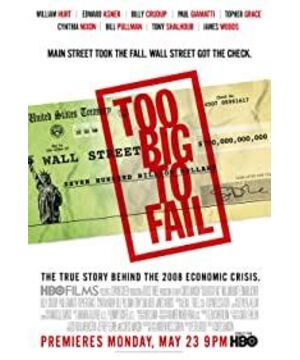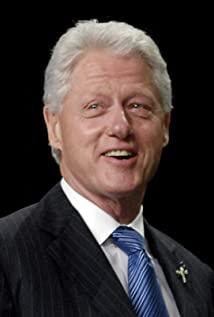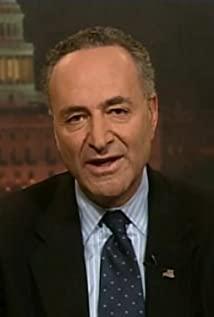II. Too big to fail? Yes,
Too Big to Fail is a TV movie produced by HBO, based on the well-known bestseller of New York Times star reporter Andrew Ross Sorkin, faithful to the original. "Too Big to Fail" follows the plot of "The Big Short", showing the thrilling rescue of the U.S. financial industry and the U.S. government's rescue after the subprime mortgage crisis broke out. If I hadn't seen it with my own eyes, I wouldn't believe that a financial film could be made into a thriller.
Before discussing the plot, we first need to understand a few questions:
1. The so-called "macro-control" that the United
States advertises as a free market economy
is a matter of moral hazard in the United States, and it will be labeled as "socialism" at every turn (Celestial Dynasty). People are baffled, who cares? any problem?), in fact this is a serious problem in America. In the bipartisan politics of the United States, the Republican Party believes in classical liberalism and advocates laissez-faire economic policies, while the Democratic Party believes in "small government" and opposes the expansion of government power. This is part of the American spirit, the foundation of American pride and moral superiority. Whether the state interferes in the operation of enterprises or the state provides money to rescue enterprises, it is contrary to this.
2
Economics is not mathematics
Taken to the extreme, economics is not even a science (of course, the word "science" has to be defined). What are the laws of economics? The laws that we have concluded by observing previous economic phenomena may be missed by "observation", right? The summary may be partial, right? Economics says that A+B=C because it has been equal to C in countless previous practices, but it does not rule out the possibility that it is not equal to C the next time. During the subprime mortgage crisis, the calculation formulas of rating agencies and the mathematical models of risk control proved to be riddled with holes. What is even more surprising is that when sellers and buyers operate financial derivatives worth hundreds of millions of dollars, they have not. People have read the hundreds of pages of product instructions - do you have to check the expiration date when buying milk in the supermarket? Don't blindly believe in any "economic laws" (economists), especially those who follow others' opinions, especially before you dig your pockets.
3
The premise of money making money is credit
One of the most important words to understand the modern financial industry is "credit", at least our money - paper money is the product of credit. Many of the terms mentioned in this article have rich meanings in economics, and only the easier-to-understand aspects are discussed here. "Credit" literally means "believe": I have credit with you, and you will lend me money; I have credit with the bank, and it allows me to overdraft. You all trust that I will pay back the money and even bring in the profit from interest. Credit can bring money and can be converted into money. Not to mention anything else, the stock market has risen from 2000 points to 6000 points, and the excess market value is almost all created by credit. In a word, investors have confidence in the stock market, and investors have confidence in financial institutions.
4
Another important word - liquidity
Liquidity is the ability of an asset to be liquidated smoothly at a reasonable price. A large amount of subprime loan claims is integrated and divided into several layers of beautiful boxes. How much is this box worth? A who holds the box thinks it is worth 200 million, and others agree, then A can raise 200 million or more from others; if others think the box contains shit and is worthless, then A The liquidity of the 200 million held is gone. Originally, A planned to use the 200 million to fill other holes, but now it does not have the ability to pay, that is, it has no credit. What happens to financial institutions without credit? Lose the value of existence!
(Shuman Brothers who eat split popsicles without asking direction)
From "Zootopia"
Back to "Too Big to Fail", the story begins with the beginning of the subprime mortgage crisis. Bear Stearns, the fifth largest investment bank in the United States, is on the verge of bankruptcy, and the government sells it to JPMorgan Chase at a low price. At this time, investors' confidence in the market has been shaken, and the market's credit has been affected. Everyone thinks: "If it wasn't for the subprime mortgage problem, how could it be sold to the pick-up man at $2 per share?!" Even if the Bear Stearns problem was resolved, investors' doubts would not decrease but increase, all aimed at platooning the old. Four of Lehman Brothers came. The U.S. government has been criticized for intervening in Bear Stearns mergers and acquisitions, so this time they plan to do something "politically correct", not making any substantive guarantees while matching Lehman, plus the continuous mistakes of Lehman's decision-making , and finally the government let Lehman go bankrupt. These investment banks are all private companies, limited liability companies, and if the factory goes bankrupt, the machines can be liquidated and discounted. What are the investment banks? old computer? With a "bankruptcy", investors have nothing to gain.
The day when Lehman declared bankruptcy is the anniversary of the American liberal economy. The result of seeking benevolence is that after this day, no redemption will occur.
The American people were very happy at first, and the government finally saved the Wall Street moths without taxpayer money! Three seconds later, they thought of their wallets, oops! There is also a lot of money in other investment banks! What if Merrill Lynch goes bankrupt? How to do? ! Take it out now! ...and then Morgan Stanley, and then Goldman... An avalanche of confidence swept through the financial industry. No confidence, no credit, no money. It took six months from the collapse of Bear Stearns to the bankruptcy of Lehman; and if Morgan Stanley collapsed, Goldman Sachs, known as the smartest on Wall Street, would last at most six hours.
On the other hand, American International Group (AIG), which insured subprime loans that seemed to be making a profit, has exhausted almost all of its liquidity in this crisis. Who let insurance companies play leverage professionally? Who is AIG? The world's largest insurance company. The endowment insurance of the American people is placed in it (and possibly China's truth-telling).
Next, there is more exciting, the real economy giants such as General Motors (Chevrolet, Buick) in the United States have also been severely impacted. First, they also went to work part-time to play finance. If they can make money while lying in bed, who gets up? The second is that the financial industry is over and no one can lend to them. The financial industry is like the blood of society. Once it stops, all organs will be deficient in blood supply and will face paralysis until death.
Safe people like you and me, don't blindly take out loans to buy houses, don't speculate in stocks, don't invest, stay away from Wall Street, can you be safe on your own? Pensions have been lost, industries have been hit, and unemployment has risen. Everyone is out of money, and the tertiary industry is also affected... The picture is too beautiful, I can't bear to imagine...
People who can't afford to buy a house when the housing price rises when the housing price plummets, I am afraid that they will be more nervous about their own survival and buy at the bottom. into real estate? Dare to buy it cheaper?
(In God We Trust)
When the US Congress discussed the rescue plan, someone told a little story.
There is a dam somewhere, and downstream of the dam is a small town. One day, when a little boy in the town passed the dam, he found that there was a small hole in the dam, which could be blocked with a finger. But he thought, "This is a problem with corrupt government tenders and irresponsible construction teams, and if I help them now, I'm contributing to their mistakes. It's immoral!" So he did nothing just left. The dam burst at night, flooding the entire town, including the boy.
In a more tender version of the story, the boy decided to stay, blocking the hole with his fingers while calling the police and waiting for rescue. Half an hour passed, an hour passed, and although he was exhausted, he still did not leave until the construction team came to the site remedy this error.
Our financial industry is this dam, too big to fail.
Well, the U.S. government felt that it should talk less about doctrines and study more issues, directly give money to the financial industry, exchange some shares, and stop criticizing nationalization. With a wave of your hand to save the market, 700 billion US dollars.
Ok, where does the money come from?
On the one hand, borrowing debts, selling government bonds, selling domestically and externally, the stars and stripes will never fall as a guarantee. Anyway, as the world economy integrates, China and Russia have also bought a lot of Wall Street stocks, right? If you want to finish it, everyone has to finish it, and you have to buy it if you don’t buy it.
On the one hand, it is taken from the Fed's balance sheet. This is very interesting, because the Federal Reserve is the central bank of the United States, and it specializes in printing U.S. dollars. If you take 700 billion out of it, it will be ok to start the money printing machine? Anyone with a little common sense should know the catastrophic consequences of issuing so many currencies. When the world is on the dollar standard, the world will lose everything.
The good news is that the Fed doesn't need to.
The Federal Reserve is the body of the Stars and Stripes. It says that it will issue 25 billion to Morgan Stanley ("Morgan Stanley"), and then the balance sheet of Morgan Stanley will be 25 billion more, which is not less than a dollar. With this 25 billion, will the market still worry about Morgan Stanley going bankrupt? Morgan Stanley can continue to make mortgage loans with 25 billion yuan, and when it does so, it does not need real US dollar bills to move around. Money is just a number in the bank, and real money is only involved when it is lent to consumers or companies. Banks lent prudently after the crisis, and the money actually flowing into the market was not much different from the value of the purchases. After all, what the Fed provides is credit, which activates the liquidity of the entire world.
Money is not everything, and nothing is impossible without money. ——"The Story of the Editorial Board"
also wrote an article to criticize this sentence, saying that the latter sentence denies the political correctness of the former sentence, and actually promotes the decadent view of money in capitalism.
Seems really too young too simple sometimes naive now. In a word, BULLSHIT!
See The Big Short on The Moral Standard of Money
View more about Too Big to Fail reviews











